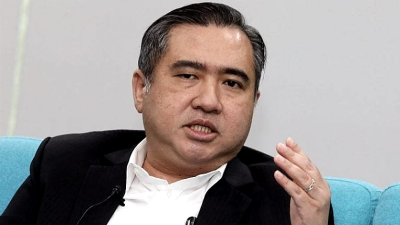In addition to brain drain, the quota system has also spawned intercommunity segregation which does not augur well for national unity.
Replying to question from a student during the recent “Temu Anwar” event at UUM in Sintok, Prime Minister Datuk Seri Anwar Ibrahim said the unity government would not abolish the university admission quota system, but would adopt other approaches to ensure that high-caliber students of all ethnic groups could get a fair chance and not be denied from securing a place in local universities.
The PM’s “will not abolish quota system” remark has let many people down.
All these years, the country’s university admission quota has successfully sent countless bumi students into the ivory tower to further their studies within the government’s public education system, while turning away many eligible non-Malay students.
It is because of this that this quota system has been viewed very differently in different ethnic circles.
But the thing is, is this system born in the 1970s still relevant in our society today? Will it still meet the needs of the country against the backdrop of our rapidly-evolving social landscape?
The environment at the time the quota system was born couldn’t have been more different from our realistic environment today. Back then the country indeed lacked Malay professionals, but after all these years, we have seen plenty of successful Malay entrepreneurs, tycoons and even professionals in every field.
According to the statistics department, bumiputra participation in specific professional fields has been astoundingly high, such as healthcare (92.7%), nursing (84.7%), land survey (63.7%), quantity survey (61.9%), dentistry (53.4%) and interior design (53.1%).
As for the other areas, bumi participation has been substantial, including architecture (41.7%), law (38.5%) and accounting (31.4%).
All these numbers point to the fact that the scenario today is very different from yesteryear, and the Malays are enjoying significantly improved abilities and economic status, making the justification for the continued implementation of the quota system highly questionable.
The quota system has come under tremendous criticism mainly because it contravenes the principle of fair competition.

Generally speaking, a student’s academic performance should be the primary criterion for his or her admission to a university, not ethnicity or other irrelevant factors.
In other words, the recruitment of students should be results-based so that our universities can churn out truly talented professionals for the job market.
The government announced in 2002 to replace the quota system with meritocracy, which on the surface does look like a massive “progress” on the part of the Malaysian government, so that only truly eligible students will get their places in the institutions of higher learning.
Unfortunately this is not the case. While the new admission selection system has the word “meritocracy” in its name, it has quota system written all over it.
In 2013, then MCA Youth chairman Wee Ka Siong slammed the system as “more quota than the previous quota system.”
Even after beating around this issue for so many years, it is official that the quota system is here to stay. In a new world of new challenges, Malaysia cannot afford to remain complacent and stagnant. We will need to re-inspect the necessity for the quota system as well as its impact on the country’s future.
Nations across the globe are striving to create or rope in talent in order to outdo their competitors in a fiercely competitive world. But weirdly, we are happy to buck the trend, allowing our most valued talent to drain elsewhere.
Our quota system has failed to nurture the most needed talent for the country’s development. In its stead, it has sent our talented young people away.
In addition to brain drain, the quota system has also spawned intercommunity segregation which does not augur well for national unity.
Having been independent for 66 years now, no ethnic community in this county ought to be sidelined by our public university admission criteria.
In view of the highly convoluted political reality, it is by no means an easy feat to fully abolish the quota system in favor of true meritocracy.
As such, we can understand that Anwar has said abolition of the quota system will create tension and become a political issue exploited by some quarters.
No doubt this is verily a tough political dilemma. That said, the brain drain arising from the quota system is an issue we simply cannot afford to overlook.
In the “Temu Anwar” event, the student throwing the question to the PM related the story of his classmate, a very bright Chinese student who applied to UM and Singapore’s NTU simultaneously, but because of our quota system, he was rejected by UM and was accepted by NTU.
This is just the story of a student, but it underscores the deficiency and unfairness of the quota system as well as the painful reality of massive brain drain from this country.
What we would like to know is for how long more such a tragic episode will keep playing.
ADVERTISEMENT
ADVERTISEMENT








































